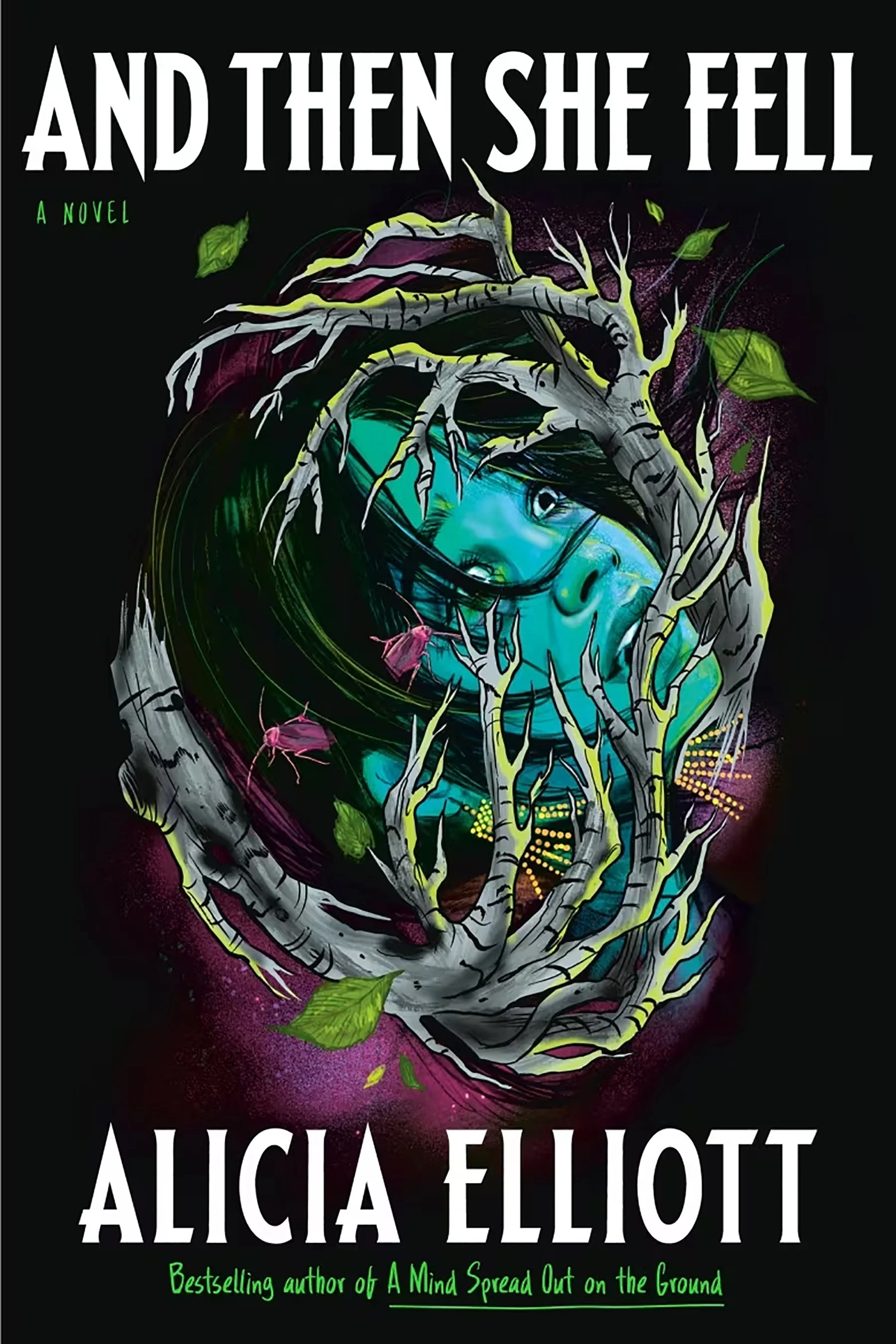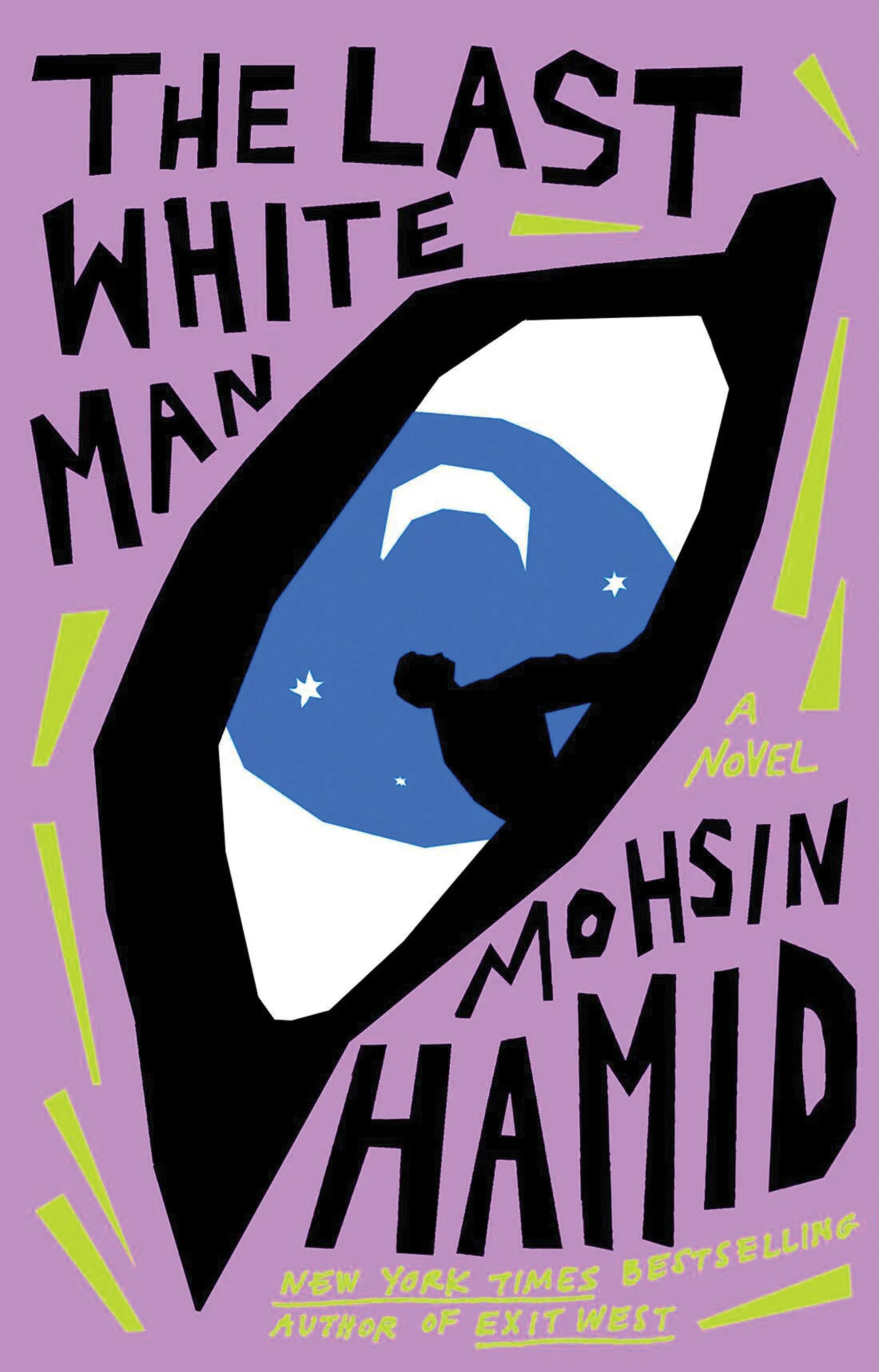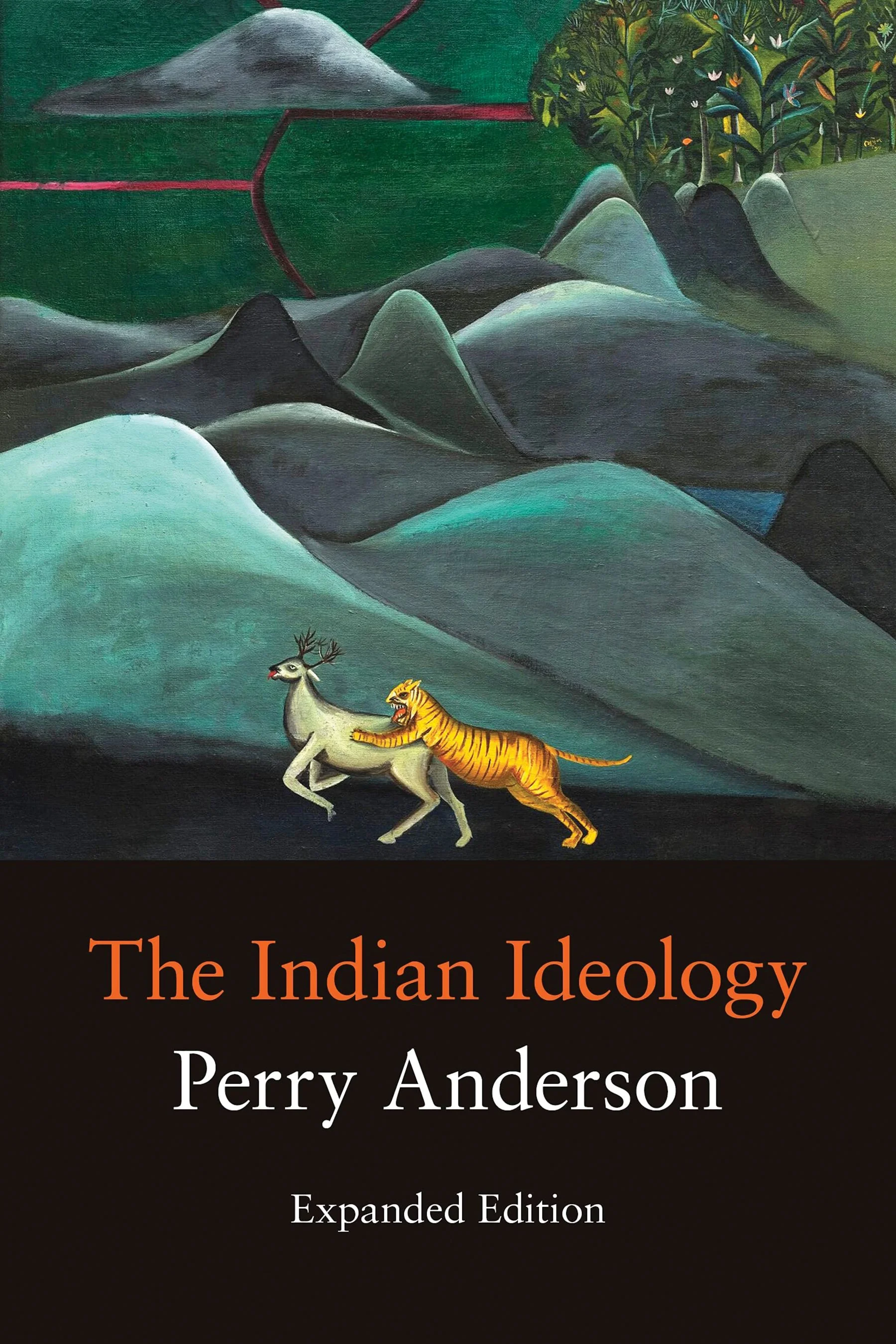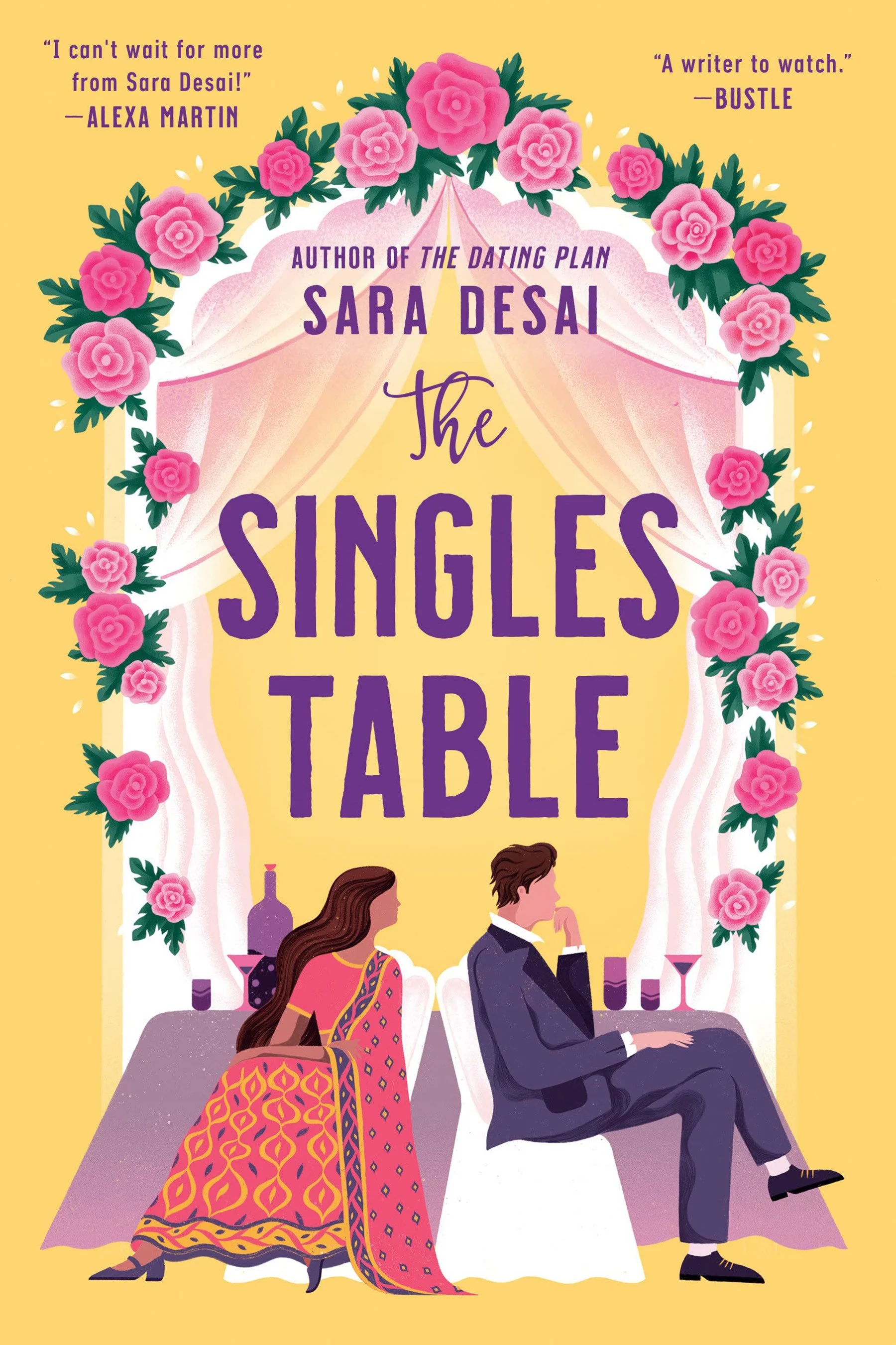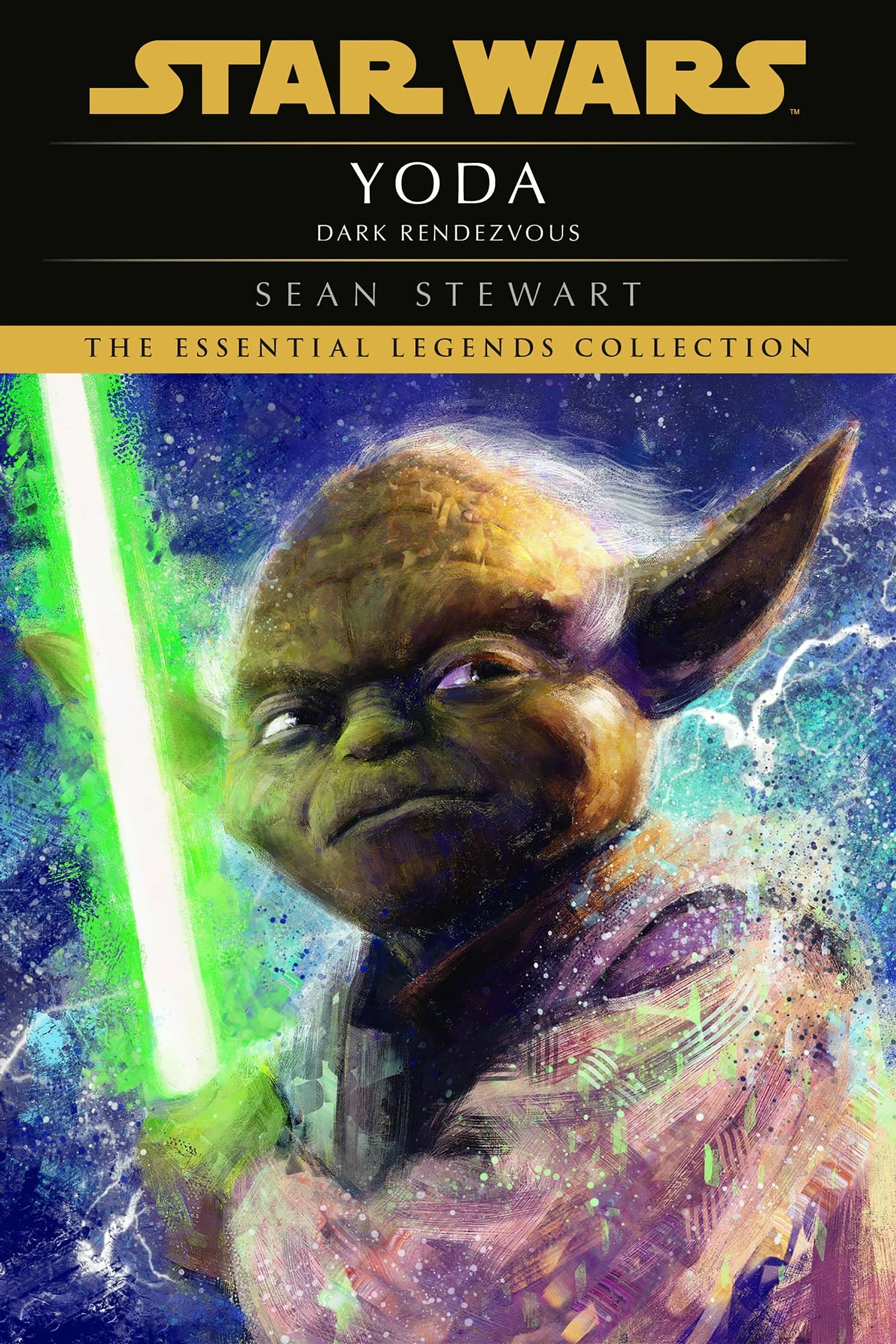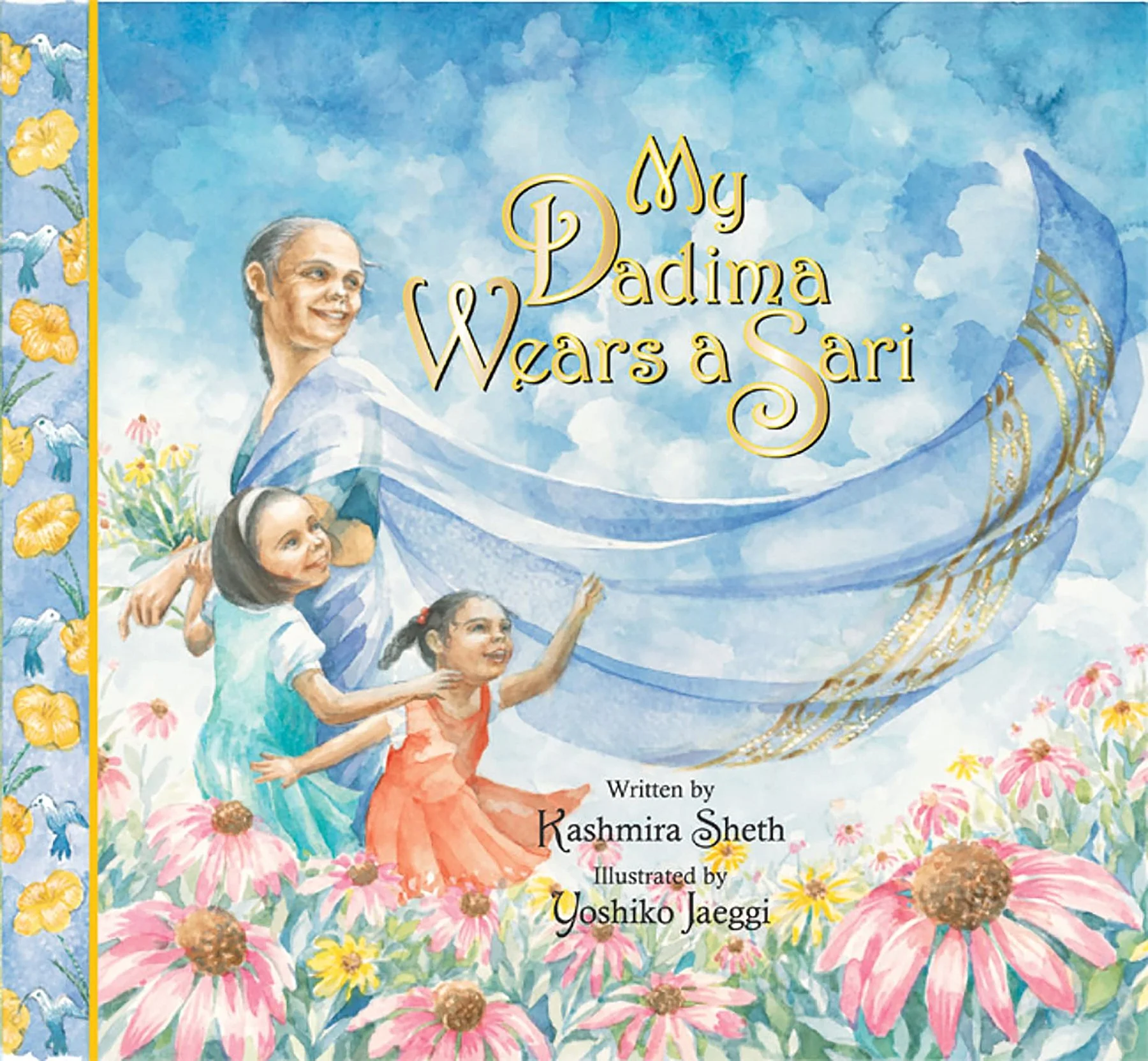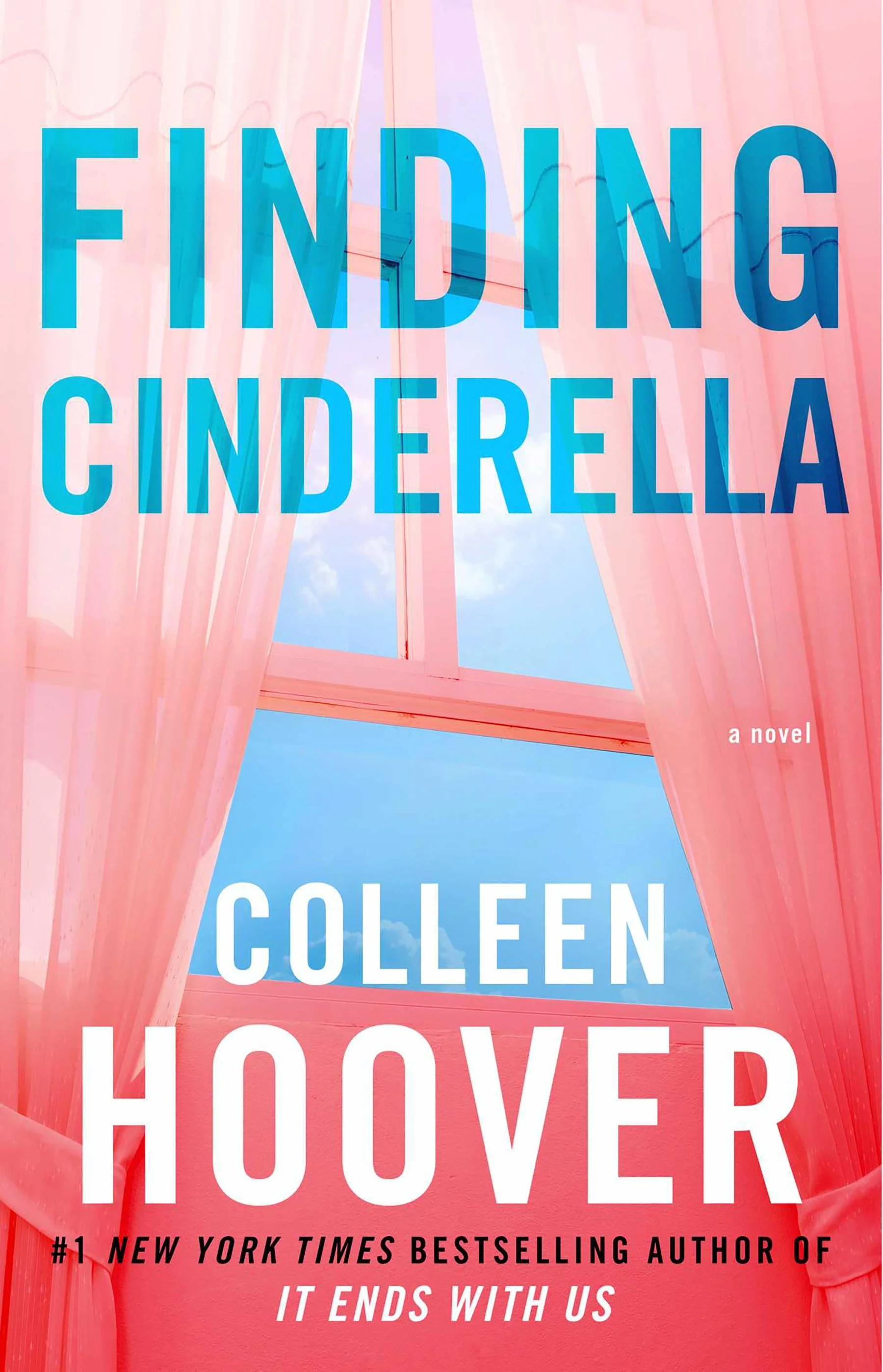BOOKWORM
WHAT LIES BENEATH
And Then She Fell by Alicia Elliott, Doubleday Canada, $28 Alicia Elliott leaves readers in no doubt about where the book is headed with the opening lines in her letter to readers.
There are two moments in my life that irrevocably changed it: when I first became pregnant with my son at seventeen, and when I lost my mind at thirty-two.
From that, she dives right into the life of Alice, a young girl who grew up on a reservation or Rez, who was disenchanted with the Disney version of Pocahontas as a young girl, even before she knew the real story.
The inheritor of so much loss, she reacts sharply to her husband learning Mohawk. Because he was ratting off words in a language that she, her parents and grandparents had lost when English was forced upon them, while she worried that “my tongue would never be able to make those sounds”.
He also just happens to sleep the way she imagines “people who’ve always known safety and prosperity do.
“The type of people who don’t have the possibility of trauma lurking in the back of their minds, always, making them hypervigilant of every creak or shift in the dark”.
She is grateful that she and her baby get to live in a nice house where she can drink water from a tap, flush the toilet and access fresh produce easily. And furious that she has to be thankful.
A neighbour on her posh street in Toronto suspects her of trying to break into her own home when she can’t find her keys.
“Why don’t you think I could live in this house, ma’am? Is it because I’m Native?”
There are so many layers to this, so much hurt, compounded by postpartum depression, mental health issues and suicidal thoughts she struggles with, that it gets difficult to read the brutal narrative in a stretch without at one point giving into, “Oh, she reacts negatively to everything”. How much of the overt and covert racism is real and how much of it is in her head?
Then this stops you in your tracks. Alice recalls that with no word for blue at the time in Greek, Homer described the Mediterranean as the “wine-dark sea”. Similarly, even those who want to empathize, perhaps can’t even begin to understand the trauma – they simply lack the lens to see it.
A poignant, razor-sharp look at Native life, motherhood, and mental health that follows a young Mohawk woman who discovers that the picture-perfect life she always hoped for may have horrifying consequences. Told in Alice’s raw and darkly funny voice, And Then She Fell is an urgent and unflinching look at inherited trauma, womanhood, denial, and false allyship, which speeds to an unpredictable climax.
CAPTAIN AGNIHOTRI’S NEXT ADVENTURE
The Spanish Diplomat’s Secret by Nev March, Minotaur, $39. Captain Jim Agnihotri and his wife Lady Diana Framji (who met in the pages of Nev March’s Murder in Old Bombay) have embarked on a ship sailing for England in the summer of 1894.
He’s now known as Captain O’Trey, his name having been misheard on their first voyage and registered as James Agney O’Trey (in Peril at the Exposition).
On the first evening, an intriguing Spaniard helps Agnihorti deal with a massive bout of mal de mer and the two former soldiers find kinship. The very next day, Don Juan Nepomuceno is found brutally murdered – shortly after he’d asked to see Agnihotri urgently.
And just like that, Agnihotri is back in his role as an investigator, ably helped by his wife.
There’s another death – a suspected suicide – and unexplained incidents on the luxury liner that leave the passengers and crew spooked.
Moving away from familiar territory, that of Parsis in Bombay, Nev March vividly describes the world of the nineteenth century transatlantic voyage – the privileged on the upper decks that dine with the captain, those who work for them, and those who toil in belly of the ship, feeding the ever-hungry steam engines.
Continental history, including the Basque uprising and trouble in Cuba – with cross references to India’s war of independence form the backdrop to this riveting whodunnit.
Her characters are rich in detail: It was likely Dona Josefina also came from old money; her contempt had a fine vintage.
She also provides a peek into the world of a woman who yearns to make something of her life on her own terms.
“A gilded cage is still a cage!”
RIVERS RUN THROUGH IT
River Poems, Edited by Henry Hughs, Everyman’s Library, $24. Just the title, River Poems, is enough to transport one to the banks of a river as it meanders gently through the countryside.
It evokes lazy days spent in dappled sunshine, the birdsong in the air finding an echo in one’s heart. Not all rivers are gentle, of course. They display a variety of moods as they thunder down cliffs or empty into oceans. This book, filled with poems from everyone you wish to see (and then some), is an ode to all those avatars. Coleridge, Byron, Thoreau and Neruda. Tennyson, Hardy, Yeats, Frost and Kipling. Also African-American spiritual songs, Rabindranath Tagore, Cittadhar Hridaya, and this, from Buddhadasa Bhikku:
The river bends – water itself does not...
The Monk said cut the forest, not the trees
I don’t know how one can try to log like that
They say that to be deemed wise
You must know how to find the water in the river
DISTILLED WISDOM
Fresh Banana Leaves by Jessica Hernandez, North Atlantic Books, $23.95. Jessica Hernandez, an Indigenous environmental scientist writes that despite the fact that Indigenous communities are among the most affected by climate devastation, Indigenous science is MIA in mainstream environmental policy or discourse.
She offers Indigenous models informed by case studies, historical overviews and stories that centre the voices of Latin American women and land protectors.
Her message is clear in the acknowledgements: May this book inspire you to plant seeds that will one day blossom into flowers of change. Decolonize. Revolutionize. Indigenize.
SEEING LIFE IN B&W
The Last White Man by Mohsin Hamid, Riverhead Books, $35. One morning, Anders wakes up and discovers that his skin has turned dark. The reflection in the mirror is a stranger.
At first, he shares his secret only with Oona, an old friend and newly a lover. Soon, reports of similar events begin to surface. Across land, people are awakening in new incarnations. Is it a new disease? An overturning of established order perhaps?
Does one accept it passively or is it to be resisted to a bitter end? No one seems to know for sure.
Anders’s father and Oona’s mother conflate it with a sense of profound loss and unease. But as the bond between Anders and Oona deepens, they see an opportunity to see themselves anew. A chance at a kind of rebirth.
A story of love and loss and rediscovery of self in a time of unsettling change.
ON THE OTHER HAND
The Indian Ideology by Perry Anderson, Verso, $33.95. The history of India is largely a story of her presumed virtues: a vast subcontinent, diverse subnations and cultures in relative harmony and territorial unity, the miraculous survival of electoral norms in a nation riven by socioeconomic faultlines. Even critics of Indian society mostly accept this “idea of India”.
Marxist historian Perry Anderson sees the realities of the Union differently. The book caused an uproar when it was first published in 2012. In this expanded edition, Anderson provides context with arguments to counter his critics.
I do believe that India’s “unity in diversity” is much more than just a slogan; it’s a way of life built around a common cultural mindset. The Indian Ideology is an “on the other hand” take – and it’s important to see where criticisms come from.
SINGLE-MINDED
The Singles Table by Sara Desai, Jove, $22. Opposites attract in this laugh-out-loud rom-com about a free-spirited lawyer who is determined to find the perfect match for Jay Dayal, the grumpy bachelor at her cousin’s wedding. After a devastating breakup, Zara Patel is determined never to open her heart again and former military security specialist Jay Dayal has no time for love. But circumstances conspire to bring the two together and they realize that the perfect match might just be their own.
A GOOD OLD-FASHIONED SCARE
The Turn of the Screw by Henry James, Penguin Classics, $36. Do ghosts exist? Are they real or imagined?
In the eight stories that form this volume, we encounter a range of ghosts. They can provide companionship. They can amuse, entertain and cause excitement. They can also punish and terrify.
Henry James has a way of bringing ghosts to life. His other-worldly beings add a context, a meaning, to the existence of the living and take their stories forward...with a twist at the end of the tale.
LIKE IT, YOU WILL
Yoda Dark Rendezvous by Sean Stewart, Random House Worlds, $23. The savage Clone Wars have forced the Republic to the edge of collapse. This gripping showdown between grand master Yoda and his former apprentice, the sinister Count Dooku, will have diehard Star Wars fans on the edge of their seats.
A SARI TALE
My Dadima Wears a Sari by Kashmira Sheth, illustrated by Yoshiko Jaeggi, Peachtree, $10.99. Rupa’s grandmother wears saris “as bright and cheerful as a bouquet of wildflowers” every day. Rupa wants to know if she doesn’t ever want to wear a skirt like she does, or perhaps trousers. No, says her grandmother, because she can do many things with a sari. And then she proceeds to show the little girl and her younger sister Neha the fun you can have with a sari. A sweet tale of inter-generational love and customs, based on the author’s own journey.
TEEN REVIEW
By GIVA GOEL
Finding Cinderella by Colleen Hoover, Atria, $21.99. Part of the Hopeless series, Finding Cinderella was almost a modern fairytale and incorporated a lot of navigation of relationships.
Daniel is a teenager when an unexpected encounter with a girl leads him to experience deep love, but it only lasts an hour. A year later, this story continues. After a toxic relationship Daniel and Six are followed as they fall in love. But a secret from the past can change everything.
The novella is a beautifully written and heart-wrenching story that explores themes of love, loss, grief, and hope. Hoover’s writing style is captivating, and she expertly weaves the story’s various elements together. The characters are well-developed and relatable, and their chemistry is beautiful, making the reader root for them.
One of the standout features is the author’s ability to infuse humour into a serious story. It adds a lighthearted touch, making it easier to read through the emotional parts.
Overall, Finding Cinderella is a touching and heartwarming story that explores complex themes in a an engaging way.
Though some may find it short, I would recommend it to teenagers interested in romance, especially fairytales.
• Giva Goel is a youth volunteer at Brampton Library.

